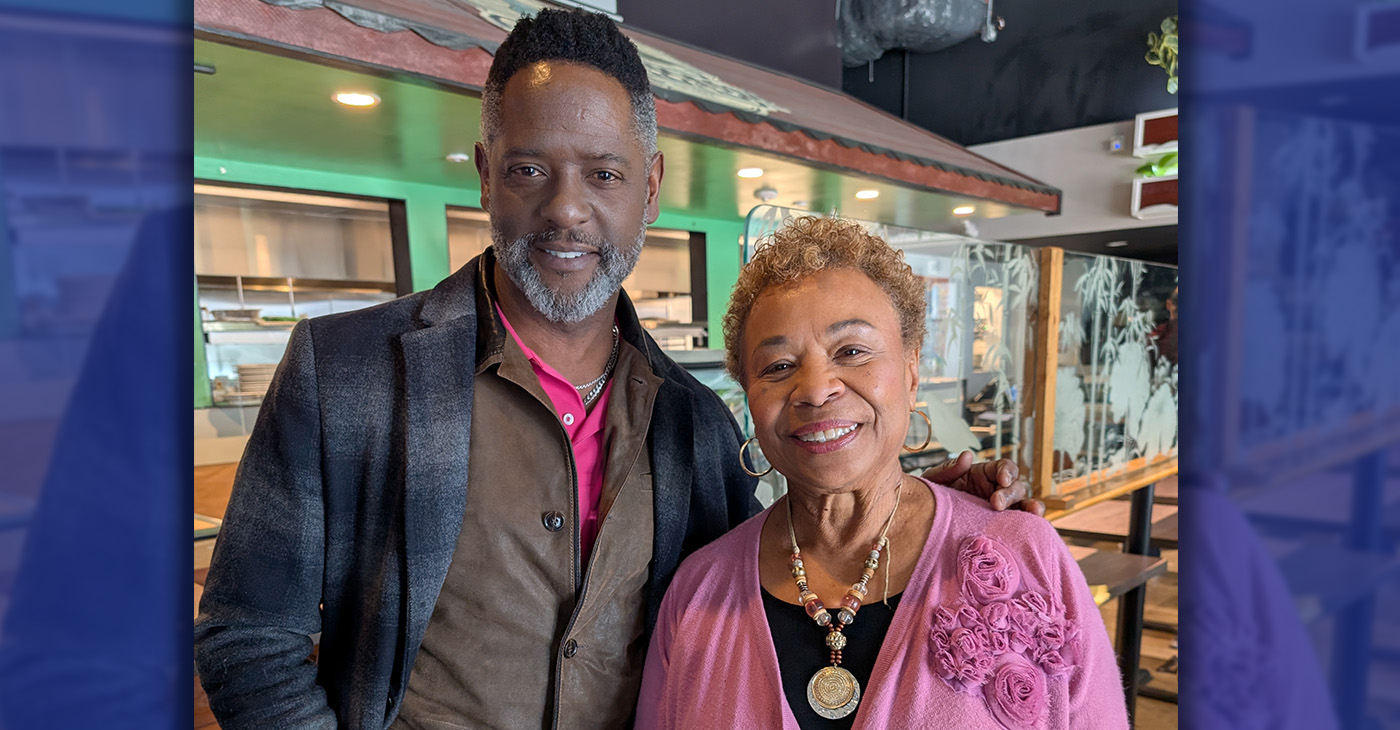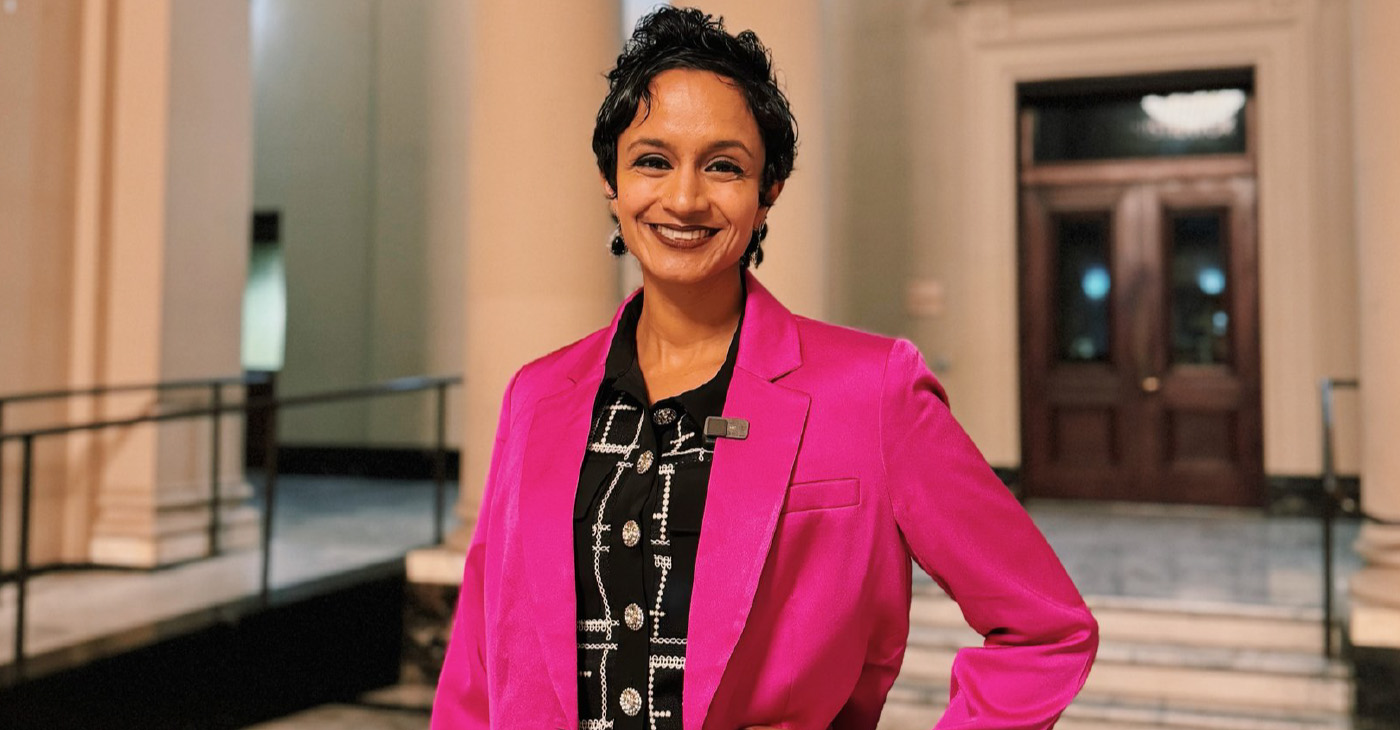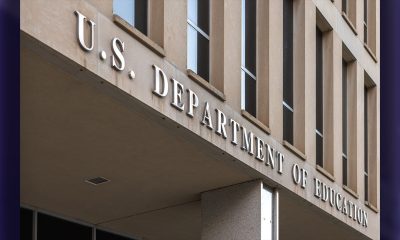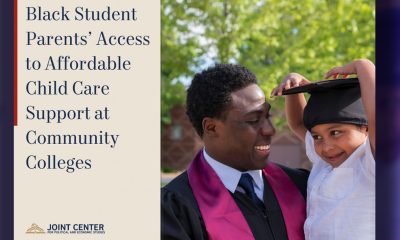Op-Ed
NAFEO Supports ‘America’s College Promise’ Initiative
By Lezli Baskerville
NNPA Guest Columnist
The National Association for Equal Opportunity in Higher Education (NAFEO), applauds President Obama’s proposal to make community college tuition free, and views it as the commencement of an important dialogue with the states, college and university stakeholders that could help move as many as 9 million “would be” students from the margins to the mainstream of American education and commerce.
The proposal would provide additional federal dollars to states that make key reforms that include strengthening the community college experience to move more students to completion, continuing to invest in community colleges, and making tuition at community colleges free. The federal dollars to the states would cover three quarters of the tuition, and the states would pay one quarter. Students who attend at least halftime, maintain a 2.5 GPA while in college, and demonstrate steady progress toward completing on time, would have the cost of their tuition covered.
Forty percent of American college students are enrolled in community colleges. Fifty-one percent of African Americans in college are in a two-year institution. Students who are eligible for and receiving the maximum Pell Grant award may already be receiving “free community college tuition/fees” because the maximum Pell Award is currently $5,730.
The major costs associated with attending a community college are cost of living expenses: housing, transportation, food, books, extra-learning opportunities, child care, healthcare, etc. If enacted, the plan would move the nation closer to realizing its 2020 goal of 60 percent of Americans having a 2- or 4-year certificate or degree.
This initiative would benefit our nation’s 14 HBCU two-year institutions, many of which are exemplars of retaining and moving students, members of the workforce, entrepreneurs, servicemen and women, including our veterans, to completion of certificate and degree programs in growth, critical-and high-need disciplines.
The initiative also will be a boon to our nation’s nearly 80 Predominantly Black Institutions (PBIs) and their service communities. Roughly 75 percent of PBIs are two-year institutions. PBI student bodies are 40 percent or more African American and 50 percent or more Pell Grant eligible.
The four-year, richly diverse Historically Black Colleges and Universities (HBCUs) could benefit by America’s College Promise as well. HBCUs are great at expanding student access and increasing success in innovative ways, including offering an increasing variety of degree and certificate programs, transfer, online, GED, high school partnership, 2+2, and continuing education options. They are exploring competency-based education options as well.
For the last decade, many HBCUs have been developing and piloting models of 2-4-year collaborations that can be replicated or taken to scale. NAFEO has worked with various partners to position its members as leaders in the new higher education landscape.
In recent years, working with the Links Incorporated, 4 HBCUs and 4 community colleges, NAFEO and its partners have developed promising practices of 2-4-year linkages that should prove useful as the debate advances about how best to shape America’s College Promise.
America’s College Promise has an added benefit for 4-year HBCUs: For more than a decade, NAFEO has urged and encouraged the administration to use the power of the federal purse to prod the states that maintain public HBCUs and public HWCUs to comply with a Supreme Court mandate to invest in HBCUs so that they are quantifiably “comparable to and competitive with” the public HWCUs (Historically White Colleges and Universities).
Despite years of education, legislation, litigation and administrative fiats, the states have not done this. America’s College Promise evidences this administration’s understanding of how to leverage the federal purse to prevent states from disengaging in higher education and to strengthen their public higher education systems.
I am confident that when the debate regarding America’s College Promise is completed, we will not only have a new option for college affordability in which states will have a “free community college” system, but that we will also have a new option for college excellence in which more public HBCUs are funded by the states so that they are “comparable to and competitive with” their HWCU counterparts.
For those concerned that the America’s College Promise Initiative will result in a loss of students to HBCUs, particularly the smaller independent 4-year HBCUs that struggle to provide an excellent, competitive education in smaller, rigorous environments while containing costs, I argue that we must be vigilant and weigh in in the federal and state deliberative processes to ensure that is not the case.
The students who attend 21st Century HBCUs do so for many reasons, including their excellent education and disproportionate affirmative results in graduating diverse students in growth and high need disciplines, in mostly smaller environments. Most students who attend an HBCU go also for what has become known as the “HBCU experience” in which the campus culture is grounded in the best of African American traditions of family, fortitude and faith, independence and interdependence. They want to attend a college in which the values and mores of their parents or guardians are undergirded and where, as in Cheers, “everybody knows your name, and they’re always glad you came.”
A limited pilot initiative in targeted states with public and private HBCUs could test for a loss of students attending HBCUs and other four-year institutions concomitant with increased enrollment of America’s College Promise students in community colleges and ther unintended adverse impacts before the initiative is fully rolled out.
America’s College Promise Initiative is a welcome affirmative step toward making a 2- or 4-year college certificate or degree within the grasp of more who are prepared and desirous of attaining one. It must not, however, be viewed as a substitute for the national efforts to increase the Pell Grant maximum award to cover the average costs of a public 4-year education. The devil, of course, is in the details. NAFEO will be at the table assisting in hammering out the details.
Lezli Baskerville is President and CEO of the National Association for Equal Opportunity in Higher Education (NAFEO).
###
Activism
Actor, Philanthropist Blair Underwood Visits Bay Area, Kicks Off Literacy Program in ‘New Oakland’ Initiative
These community activations were coordinated with the San Francisco-based non-profit program “Room to Read.” Ray said he is also donating his time to read and take pictures with students to encourage their engagement and to inspire them to read more. The inspirational book “Clifford Ray Saves the Day” highlights Clifford Ray’s true story of saving a dolphin.

By Paul Cobb
New Oakland Series
Opinion Part 3
The Post mentioned three weeks ago that a number of our local luminaries were coming together to support the “New Oakland” movement. As this current national administration continues to eliminate our “legacy” institutional policies and programs left and right, most communities find themselves beyond “frozen” in fear.
Well, esteemed actor, long-time Bay Area supporter, and philanthropist Blair Underwood returned to Oakland this week to speak with city leaders, community trust agents, students, the Oakland Post, and local celebrities alike to continue his “New Oakland” initiative.
This week, he kicked off his “Guess Who’s Coming to Read” literacy program in some of Oakland’s middle schools. Clifford Ray, who played the center position of the 1975 World Champion Golden State Warriors, donated close to 1,000 books. Ray’s fellow teammate Charles “The Hopper” Dudley also gave Converse sneakers to students.
These community activations were coordinated with the San Francisco-based non-profit program “Room to Read.” Ray said he is also donating his time to read and take pictures with students to encourage their engagement and to inspire them to read more. The inspirational book “Clifford Ray Saves the Day” highlights Clifford Ray’s true story of saving a dolphin.
Underwood also spent quality time with the Oakland Ballers ownership group and visited the amazing Raimondi Park West Oakland community revitalization site. In the 1996 TV film Soul of the Game, Underwood played the role of the legendary first Black Major League Baseball player Jackie Robinson and commended the Ballers owners.
“This group of sports enthusiasts/ philanthropists needs to be applauded for their human capital investment and their financial capital investment,” Underwood said. “Truly putting their money and passion to work,” Underwood said.
Underwood was also inspired by mayoral candidate Barbara Lee’s open-minded invitation to bring public-private partnership opportunities to Oakland.
Underwood said he wants to “reinforce the importance of ‘collaborative activism’ among those most marginalized by non-empathic leadership. We must ‘act out’ our discomfort with passionate intentions to create healthy change.”
Activism
Councilmembers Ramachandran, Kaplan, Unger Identify Funds to Save Oakland Fire Stations
Our budget crisis – one of the worst in Oakland’s history – is compounded by the fact that people do not feel safe coming to Oakland due to our public safety crisis. By investing in our fundamental public safety resources today, we can send a signal to the world that Oakland is open for business. We have such a rich and vibrant culture, arts, and food scene that is worth celebrating – but we can only showcase this if we are able to keep our neighborhoods safe. Having fully functioning fire stations are absolutely essential to these efforts.

By Janani Ramachandran
There is no greater concern to the people of Oakland today than public safety. Fire stations are the bread and butter of essential city services – and every day that we have stations shuttered, we imperil the lives of our community members. In response to widespread outcry over the current and planned closure of stations, myself, along with Councilmembers Kaplan and Unger, have painstakingly worked to identify millions of dollars of new funding to save our stations. The legislation we introduced on Thursday, February 13th, will amend our budget to prevent the closure of four fire stations that are currently on the chopping block due to our budget crisis and will re-open two closed stations that have already been closed – Station 25 and 28 – in the near future. The resolution that will provide the funding to keep our stations open will go before the full City Council for a vote at our meeting on Tuesday, March 4th at 3:30 PM – and we invite you to join us at City Hall to share your perspective on the topic.
Our budget crisis – one of the worst in Oakland’s history – is compounded by the fact that people do not feel safe coming to Oakland due to our public safety crisis. By investing in our fundamental public safety resources today, we can send a signal to the world that Oakland is open for business. We have such a rich and vibrant culture, arts, and food scene that is worth celebrating – but we can only showcase this if we are able to keep our neighborhoods safe. Having fully functioning fire stations are absolutely essential to these efforts.
With the devastating Los Angeles fire at the top of people’s minds, terrible memories of Oakland’s own wildfires are re-surfacing from the 1991 Oakland Hills Firestorm to the Keller fire just a few months ago – and how essential fire stations are to mitigating these catastrophes. But in Oakland, our fire stations don’t just fight wildfires – they also provide emergency medical services to our most vulnerable constituents, put out structural fires and encampment fires, and much more.
We recognize that there are a number of competing interests and important initiatives fighting for sparse City resources. But from my perspective, core safety services are the most pivotal functions that a City must spend its resources on – especially given the outcry we have heard around fire stations.
The fight to save our stations is not over. The resolution we introduced is a critical first step, and there are hurdles to overcome. If you support keeping our fire stations open, we invite you to be a part of the solution by making your voice heard at the March 4th City Council meeting at 3:30 pm.
Activism
NNPA Launches National Public Education and Selective Buying Campaign
“We are the trusted voice of Black America, and we will not be silent or nonresponsive to the rapid rise of renewed Jim Crow racist policies in corporate America,” stated NNPA Chairman Bobby R. Henry Sr. “The Black Press of America continues to remain on the frontline keeping our families and communities informed and engaged on all the issues that impact our quality of life.”

Washington, DC: The National Newspaper Publishers Association (NNPA), representing the Black Press of America, has announced the planning and implementation of a national public education and selective buying campaign across the nation in direct response to those corporate entities that have dismantled their respective Diversity, Equity and Inclusion (DEI) commitments, programs and staffing. NNPA Chairman Emeritus Danny Bakewell Sr. explained, “Now is the time for the Black Press of America once again to emphatically speak and publish truth to power.”
“We are the trusted voice of Black America, and we will not be silent or nonresponsive to the rapid rise of renewed Jim Crow racist policies in corporate America,” stated NNPA Chairman Bobby R. Henry Sr. “The Black Press of America continues to remain on the frontline keeping our families and communities informed and engaged on all the issues that impact our quality of life.”
At a recent convening of NNPA member publishers and editors, a united resolve was reached that each member publication of the NNPA will begin a national public education campaign coupled with the release of research data on those American companies that are engaging in efforts to sanction racial injustice, inequitable polices, divisive leadership, and economic apartheid in America.
“We note forthrightly that Black Americans spend $2 trillion dollars annually as consumers of products and services throughout the United States,” NNPA President and CEO Dr. Benjamin F. Chavis Jr. emphasized. “We now must evaluate and realign to question why we continue to spend our money with companies that do not respect us,” Chavis continued. “This now must come to an end. These contradictions will not go unchallenged by 50 million Black Americans who have struggled for centuries to ensure equality, fairness and inclusion in our nation’s democracy.”
A selective buying campaign involves exercising the right to select what we spend our money on and who we spend our money with. We are starting with targeting TARGET.
The following are some of the major American companies that have publicly retreated from Diversity, Equity and Inclusion:
- TARGET
- Lowe’s
- John Deer
- Walmart
- Meta
- Tractor Supply
- Amazon
- McDonald’s
- Ford
-

 #NNPA BlackPress4 weeks ago
#NNPA BlackPress4 weeks agoTarget Takes a Hit: $12.4 Billion Wiped Out as Boycotts Grow
-

 Activism4 weeks ago
Activism4 weeks agoUndocumented Workers Are Struggling to Feed Themselves. Slashed Budgets and New Immigration Policies Bring Fresh Challenges
-

 #NNPA BlackPress4 weeks ago
#NNPA BlackPress4 weeks agoBREAKING Groundbreaking Singer Angie Stone Dies in Car Accident at 63
-

 #NNPA BlackPress4 weeks ago
#NNPA BlackPress4 weeks agoNAACP Legend and Freedom Fighter Hazel Dukes Passes
-

 Arts and Culture4 weeks ago
Arts and Culture4 weeks agoBeverly Lorraine Greene: A Pioneering Architect and Symbol of Possibility and Progress
-

 Activism3 weeks ago
Activism3 weeks agoOakland Post: Week of March 5 – 11, 2025
-

 #NNPA BlackPress1 week ago
#NNPA BlackPress1 week agoRev. Dr. Jamal Bryant’s Black Church Target Boycott Mobilizes 150,000
-

 #NNPA BlackPress3 weeks ago
#NNPA BlackPress3 weeks agoTrump Moves to Dismantle Education Department























































